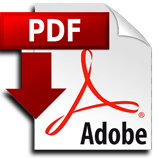ANTESEDEN DAN KONSEKUENSI PEMANFAATAN TEKNOLOGI SISTEM INFORMASI AKUNTANSI PADA PERUSAHAAN DI KOTA BALIKPAPAN
DOI:
https://doi.org/10.30742/equilibrium.v12i2.118Keywords:
social factors, Affect factors, factors of long-term consequences, complexity, conformity tasks, facilitating conditions, Utilization of Information Technology, PerformanceAbstract
The main objective of this study is to examine the factors that are antecedents to use information technology, as well as the consequences of the use of information technology in accounting employees in Singapore, with reference to previous studies that have been conducted in several service organizations. Based on the research results, the use of accounting information technology employees in the accounting department at the company resulted in the conclusion that the use of information technology is influenced by factors Affect and long-term consequences but is not influenced by social factors, complexity, compliance tasks, and facilitating conditions. And of the results of the regression utilization of information technology does not affect the performance.References
Alavi,M dan Gallupe,R.B., 2003. Using Information Technology in Learning: Case Studies in Business and Management Education Programs. Academy of Management Learning and Education. P. 139-153
Basuki, Hartono Apri. 2005. Analisis Faktor-Faktor yang Berpengaruh terhadap Pemanfataan Tekn Inf dan Pengaruh Pemanfaatannya terhadap Kinerja Auditor BPK-RI. Tesis S2. UGM
Budiman, Rosyid Muhamad. Kearsipan Berbasis Teknologi Informasi
Compeau, Deborah., Hiigins, A.Christopher., dan Huff, Sid. 1999. Social Cognitive Theory and Individual Reactions to Computing Technology: A Longitudinal Study. MIS Quarterly. June, vol 23, Issue 2
Cox, et al. 1999. What Factors Support or Prevent Teachers from Using ICT in their Classroom. Paper Presented at the British Educational Research Association Annual Conference University of Sussex. September 2-5
Davis, Fred., Bagozzi P.Richard dan Warshaw R.Paul. 1989. User Acceptance of Computer Technology: A Comparison of Twi Theoritical Models. Management Science. p.982-1003
De Lone,H.William dan Mc Lean R. Ephraim. 1992. Informastion System Success: The Quest for the Dependent Variable. Information System Research. p.60-95
Dewi, Parwanti,. 2004. Pengaruh Faktor-Faktor Individual dan Pemanfataan Teknologi Informasi terhadap Kinerja Karyawan RSU Swasta Di DIY. Tesis UGM
Fishbein,M dan Ajzen,I. 1975. Belief, Attitude, Intention and Behavior. An Introduction to Theory and Research. Addison-Wisley,Boston,MA
Ghozali,Imam. 2005. Aplikasi Analisis Multivariate Dengan Program SPSS. Edisi ketiga. BP UNDIP Semarang
Goodhue,Dale L. 1988. IS Attitudes:Toward Theoritical and Definition Clarity. Data Base Fall/Winter. p.6-15
Goodhue,Dale L., dan Thompson, Ronald L. 1995. â€Task- Technology Fit and Individual Performance,†MIS Quarterly. June . p.213-236
Gujarati N, Damodar. 2003. Basic Econometrics. Fourth Edition. New York. Mc Graw Hill
Hair F, Joseph., et al. 1998. Multivariate Analysis. Prentice Hall. Fifth Edition
Jackson, Cyntia M.,Simeon, Chow dan Leitch, Robert.A, 1997. â€Toward an Understanding of Behavioral Intention to Use an Information System,†Decision Science. Spring . p.357-389
Jin, Fung Tjhai. 2002. Analisis Faktor-Faktor yang Mempengaruhi Pemanfataan Teknologi Informasi dan Pengaruh Pemanfaatan Teknologi Informasi terhadap Kinerja Akuntan Publik Publik. Tesis S2. UGM
Mortensen, Erik. 1988. Personal Computer:Tools Par Excellence. The Office
Nasution, Fahmi Natigor. 2004. Penggunaan Teknologi Informasi Berdasarkan Aspek Keperilakuan (Behavioral Aspect). USU Digital Library
Oktaviani, Adityara Sita. 2002. Pengaruh Kecocokan Tugas dan Teknologi terhadap Kinerja Karyawan PTS DI.Yogyakarta. Tesis S2. UGM
Raharjo,Budi. 2004. Pemanfaatan Teknologi Informasi di Perguruan Tinggi. Dipresentasikan pada Acara “Sosialisasi Mengenai Implementasi Penerapan UU No.19 tahun 2002 tentang Hak Cipta; Pemerintah sebagai Panutan dalam Ketaatan Piranti Lunak.
Schmit,Don dan McCarty,Bob.,â€Health Care Utilization Analysis With Today’s Information Technology,â€Employee Benefit Journal,Sept.1993
Thompson L, Ronald,. Higgins A, Christopher dan Howell M, Jane. 1991. Personal Computing: Toward a Conceptual Model of Utilization. MIS Quarterly. March. P. 125-143
Thompson L, Ronald., Higgins A, Christopher dan Howell M, Jane. 1994 1994. Influence of Experience on Personal Computer Utilization:Testing A Conceptual Model.Journal of Management Information System.
Tornatzky, L.G dan Klein,KJ. 1982. Inovation Characteristic and Innovation Adoption-Implementation: A Meta Analysis of Findings. IEEE Transaction on Engineering Management. p.28-45
Triandis,HC.1980. Values,Attitudes and Interpersonal Behavior. Uniersity of Nebraska Press,Lincoln, NE. p.195-259
UU RI No 2 tahun 1989. Sistem Pendidikan Nasional. Bab XIII pasal 47
UU RI No 8 tahun 2002. Sistem Nasional Penelitian, Pengembangan dan Penerapan Ilmu Pengetahuan dan Teknologi
Wahid, Fathul. 2005. Modernisasi Pendidikan Bangsa. Disampaikan pada Simposium Nasional Pendidikan
Downloads
Issue
Section
License
Authors who publish with this journal agree to the following terms:
- Authors retain copyright and grant the journal right of first publication with the work simultaneously licensed under a Attribution-ShareAlike 4.0 International (CC BY-SA 4.0) License that allows others to share the work with an acknowledgement of the work's authorship and initial publication in this journal.
- Authors are able to enter into separate, additional contractual arrangements for the non-exclusive distribution of the journal's published version of the work (e.g., post it to an institutional repository or publish it in a book), with an acknowledgement of its initial publication in this journal.
- Authors are permitted and encouraged to post their work online (e.g., in institutional repositories or on their website) prior to and during the submission process, as it can lead to productive exchanges, as well as earlier and greater citation of published work








